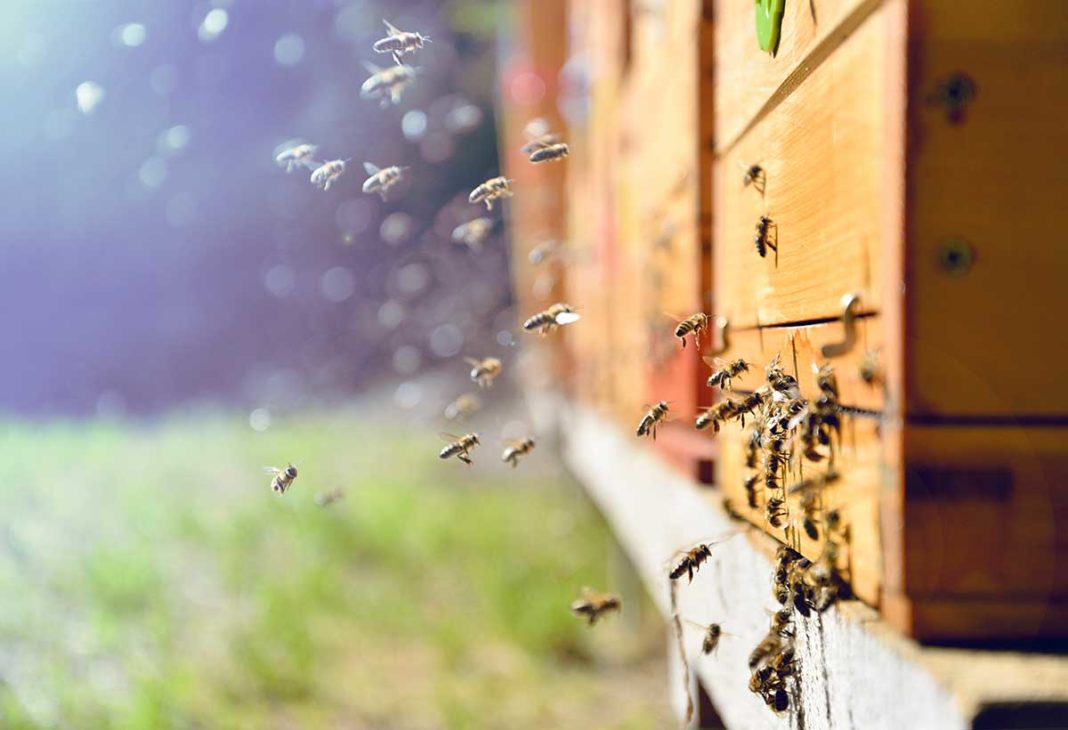KAGAWONG – A special council meeting was held June 8 for council members of the Township of Billings to discuss several bylaws currently under review, including an enforcement bylaw, a domestic and exotic animals bylaw and a trailer bylaw.
Arthur Moran, bylaw enforcement officer for Billings, prepared a presentation for council that included discussion memos, draft bylaws, draft policies and other documents. Mr. Moran explained that he would like council to review and discuss these three bylaws in a special council meeting to ensure there was an opportunity to develop a thorough understanding prior to a first reading during a regular council meeting.
He suggested council proceed using a process similar to that used by the Town of Gore Bay, where he also performs bylaw duties. In Gore Bay, any new or revised bylaw is discussed and reviewed at a committee level meeting for potential changes or revisions. Following that, they are brought back to the committee for consensus. The bylaw is then brought forward at a regular council meeting for final reading and enactment.
First up for discussion was the enforcement bylaw. This bylaw was brought up to council earlier this year but was focused primarily on supporting the bylaw enforcement officer in executing his duties, Mr. Moran said. There currently isn’t a bylaw that provides the authority to enter onto a property for all township employees to carry out their required duties, thus inhibiting these employees from performing their duties effectively, he said. This includes the building inspector, bylaw officer, fire chief or public works.
The proposed bylaw is consistent with bylaws used by other Ontario municipalities. Since a big concern of Billings residents is personal rights and protection of privacy, Mr. Moran discussed what steps he follows when following up on identified bylaw complaints. Complaints are filed on a complaint form online or at the township office or there is a telephone conversation or email communication. A bylaw violation may also be witnessed through bylaw compliance patrols and observations.
Once a bylaw concern has been identified, contact information regarding the property owners will be obtained from the municipal office. There will be a check to determine if there are previous complaints on record. Property owners will then be contacted by phone or letter regarding the concern and a courtesy visit would be scheduled. The issue would then be discussed with the property owners and a plan developed if there has been an infraction. A follow up letter is sent out detailing the contact, what action may be required and timeline for action, if required. If the matter is resolved in a timely matter, it would be considered closed. If there is no compliance, there is further discussion with the township CAO to determine whether follow-up education or enforcement is warranted. These measures would be then be taken. All actions are recorded and filed with the township in that property file. Appropriate health and safety measures are observed and all Charter of Rights and Freedoms are strictly observed, said Mr. Moran.
It is only in rare cases that enforcement actions, such as orders and fines, are taken. In the majority of cases, the property visit is educational rather than for enforcement and most visits would take place outside of a residence. The bylaw is not a general power to enter a residence, Mr. Moran explained.
A bylaw officer, fire chief, public works employee or other authorized person may require the production of documents, information or other things relevant to the inspection, subject to the Township of Billings Power of Entry and Enforcement Policy or the provisions of section 438 of the Municipal Act.
Councillor Sharon Jackson questioned the use of the word ‘required,’ opting for the less harsh ‘requested.’ Councillor Bryan Barker explained that the wording would be a legal requirement and was referenced directly from the Municipal Act.
Discussion moved to the revised domestic/exotic animal bylaw to regulate the keeping and feeding of animals other than cats or dogs. As a keeper of bees, Councillor Barker declared a pecuniary interest and removed himself from the discussion. Bees are considered an exotic animal.
This bylaw would replace the existing bylaw 2015-03. This type of bylaw is standard among many cities and towns across the province, although his research found that not all bylaws are the same, noted Mr. Moran. Changing attitudes towards the various types of animals being kept as pets and which may be defined as domestic or exotic animals or domestic fowl, required a review and repeal of 2015-03.
Mr. Moran also pointed out the changing population demographics and growth of new residences in various subdivisions throughout Billings would indicate a need for review. Both Councillor Jackson and Councillor Sharon Alkenbrack indicated they approved of this step towards modernization of animal bylaws.
There will be continued discussion of the proposed bylaws at a future special council meeting. The date has not yet been set.





